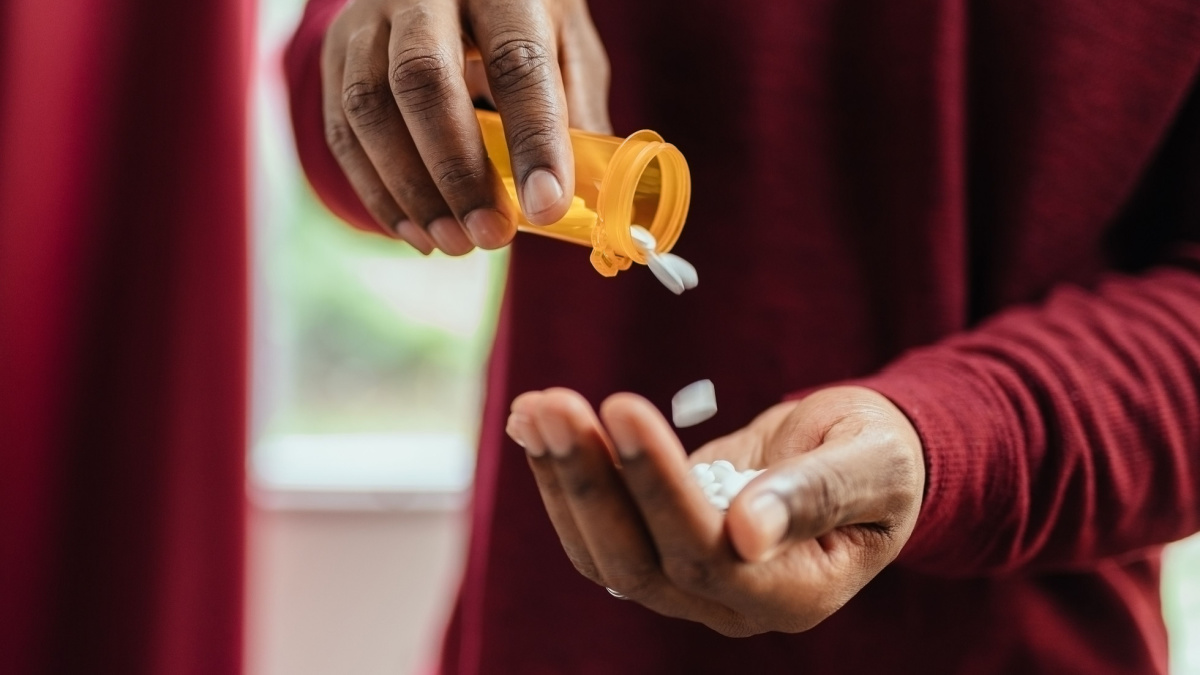The COVID-19 pandemic has had a significant impact on the opioid epidemic, with reports indicating that the number of opioid-related deaths has increased since the outbreak began. The pandemic has caused stress, anxiety, and economic uncertainty, which has led to an increase in substance abuse. People who were previously in recovery may have relapsed due to the pandemic’s impact, while others who have never struggled with addiction before may have turned to opioids to cope with the stress and anxiety caused by the pandemic.
There has also been a disruption in the supply chain of legal prescription opioids, leading some people to turn to illegal opioids such as fentanyl, which are much more potent and dangerous. The pandemic has also made it more difficult for people struggling with opioid addiction to access treatment and support services. Overall, the link between COVID-19 and increased opioid use is a concerning trend that needs to be addressed through targeted interventions and support for those struggling with addiction.
The Impact Of Social Isolation On Opioid Addiction
The COVID-19 pandemic has brought about a new wave of social isolation, which has had a significant impact on individuals struggling with opioid addiction. Isolation can exacerbate feelings of anxiety, depression, and hopelessness, which can lead to an increased desire to use drugs. Moreover, the social distancing restriction has made it difficult for individuals to access support groups which made managing addiction also challenging.
The lack of human connection and support during the pandemic has also led to an increase in overdose deaths. Many individuals struggling with addiction are unable to access naloxone, a medication used to reverse opioid overdoses, due to limited access to healthcare services. Overall, the impact of social isolation on opioid addiction has been devastating, highlighting the need for increased access to mental health resources and addiction treatment during these challenging times.
Telemedicine And Opioid Addiction During The Pandemic
Telemedicine enables healthcare professionals to provide addiction treatment services remotely, including medication-assisted treatment (MAT) and counseling. This approach has helped to ensure that individuals receive the care they need while minimizing their risk of exposure to COVID-19. Additionally, telemedicine has made it easier for individuals to access addiction treatment services from the comfort of their own homes, eliminating the need for travel and reducing barriers to care. As the pandemic continues, it is likely that telemedicine will continue to play a critical role in treating opioid addiction and other substance use disorders.
The Challenges Of Accessing Addiction Treatment During COVID-19
The COVID-19 pandemic has brought numerous challenges to those seeking addiction treatment. Many addiction treatment centers have had to reduce their capacity or temporarily close due to social distancing requirements. This has resulted in longer wait times for those seeking help and has made it difficult for some to access treatment altogether. Additionally, the pandemic has caused economic hardship for many, making it harder to afford treatment or even basic necessities such as food and housing. These challenges have contributed to a rise in opioid deaths as individuals struggling with addiction may not be able to access the support they need.
Furthermore, the pandemic has also led to an increase in stress and anxiety, which can exacerbate addiction issues. Social isolation and limited access to traditional support networks have made it harder for individuals struggling with addiction to receive the emotional support they need. The pandemic has also led to a rise in telehealth services, which can be beneficial for some seeking addiction treatment. However, not everyone has access to the technology needed to participate in virtual sessions, further exacerbating the challenges of accessing addiction treatment during COVID-19.
The Increase In Synthetic Opioids During The Pandemic
The COVID-19 pandemic has led to an increase in the use of synthetic opioids, such as fentanyl, due to disruptions in the drug supply chain. With borders closed and travel restricted, drug dealers have turned to cheaper and more potent synthetic opioids to meet the demand. Additionally, the pandemic has resulted in increased stress and anxiety, leading some individuals to turn to drugs as a coping mechanism.
This increase in synthetic opioids has led to a sharp rise in opioid-related deaths, with many individuals unknowingly consuming these dangerous substances. Synthetic opioids are significantly more potent than traditional opioids, making them much more dangerous in terms of overdose and addiction. As the pandemic continues to disrupt drug supply chains, it is crucial that individuals struggling with addiction seek help and support to avoid the potentially deadly consequences of synthetic opioid use.
The Impact Of Economic Stress On Opioid Addiction And Overdose
The COVID-19 pandemic has caused a significant economic downturn, with millions of people losing their jobs and struggling to make ends meet. This economic stress has led to an increase in opioid addiction and overdose. Studies have shown that economic stress is a significant risk factor for substance abuse, and the pandemic has exacerbated this issue. People who are struggling financially may turn to opioids as a way to cope with stress, anxiety, and depression. Additionally, the pandemic has disrupted access to addiction treatment and recovery services, making it harder for people to get the help they need.
The impact of economic stress on opioid addiction and overdose is a complex issue that requires a multifaceted approach. It is essential to address the root causes of economic stress by providing financial assistance and support to those who are struggling. At the same time, efforts must be made to improve access to addiction treatment and recovery services. This includes expanding telehealth services and ensuring that essential workers have access to the care they need. By addressing both the economic and healthcare aspects of the opioid epidemic, we can work towards reducing the number of opioid-related deaths and improving the lives of those who are struggling with addiction.
The Need For Harm Reduction Strategies During The Pandemic
Harm reduction strategies such as providing access to naloxone and expanding medication-assisted treatment can help reduce the number of overdose deaths. Moreover, harm reduction strategies should also take into account the social distancing measures and lockdowns that have been implemented during the pandemic. This includes providing virtual support and telemedicine services for those struggling with substance use disorders. It is important to prioritize harm reduction strategies to prevent further harm to individuals struggling with addiction during these challenging times.
The Urgent Need For Action To Address The Opioid Epidemic During And After The COVID-19 Pandemic
The opioid epidemic has been a growing concern in the United States for several years, and the COVID-19 pandemic has only exacerbated the problem. The pandemic has led to increased stress, anxiety, and isolation, which has caused many people to turn to opioids as a coping mechanism. Additionally, the pandemic has made it more difficult for people to access addiction treatment and support services, which has further contributed to the rise in opioid deaths.
It is clear that urgent action is needed to address the opioid epidemic during and after the COVID-19 pandemic. This includes increasing access to addiction treatment and support services, providing resources to help people cope with stress and anxiety, and implementing policies to reduce the availability of opioids. It is also important to address the underlying factors that contribute to the opioid epidemic, such as poverty, unemployment, and lack of access to healthcare. By taking action now, we can help prevent further harm and save lives.




